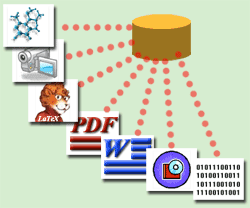Migration & Gender: Vocational and Educational counseling Sample Erasmus+ Ka2 Project
According to Eurostat statistics, in 2012, there were an estimated 1.7 million immigrants coming to the EU from outside countries. In addition, 1.7 million people previously residing in one of the EU Member States migrated to another Member State. Thus, about 3.4 million people immigrated to one of the EU-27 Member States. Among them, a variable percentage from 51% (Italy) to 43% (Germany) were women. Germany reported the largest number of immigrants (592 200) in 2012, followed by the United Kingdom (498 000) and Italy (350 800). Spain reported the highest number of emigrants in 2012 (446 600), followed by the United Kingdom (321 200) and Poland (275 600).
Evidence indicate persistent issues impacting on their integration and employment. Very often, newly arrived migrants struggle to find a decent job, while they are faced with a number of integration issues including gender inequality and cultural bias. Furthermore, many experience long periods of inactivity, unemployment, or long tenures in the so-called 3Ds job: Dirty, Dangerous and Demanding and are often not adequately paid or regularly insured.
Moreover, when migrants are skilled and qualified in their country of origin, they experience “brain waste”, face difficulties in putting their qualification to good use and therefore are at risk of frustration and de-motivation. On the other hand, not being able to fully profit of the skills and capacities of migrants is also an unnecessary waste for the countries of destination, who are not in measure to fruitfully build on the competences of their migrant workers.
A recent report by The Migration Policy Institute (Benton, 2014) pointed out that one of the ways to overcome these difficulties is the early provision of relevant career advice, with specialized work-force and dedicated service organizations. However, there is a lack of tailored and adequate understanding of the real needs and challenges faced by migrants particularly in relation to issues impacting on their gender. The guidance sector remains quite heterogeneous and there are no requirements for quality standards or for the qualification of staff. This is why more and more professionals as well as representatives of users claim compulsory quality standards and guidelines.
Consequently, The Council Resolutions on Lifelong Guidance (2004 and 2008), with the establishment of the European Commission’s Expert Group Lifelong Guidance and the foundation of the ELGPN – European Lifelong Guidance Policy Network recommended the development of a European lifelong guidance policy.
MOVE ON intends to build on this EU-wide recommendation by contributing to strengthening the skills and capacities of adult learners in the participating organisations, countries and across Europe with the ultimate goal of enhancing their skills and knowledge in providing the right career guidance and counseling to EU migrants paying particular attention to issues impacting on gender and culture as these are manifested at the recruitment stage but also at the workplace and remuneration.
The training material and programmes resulting from MOVE ON will be CPD accredited (Continuing Professional Development), giving our participant adult learners an extra incentive while also adding to their CV and qualification. Where young people are involved we will provide them with YouthPass (IARS is a provider of both types of qualifications).
Using a user-led methodology and by building on evidence from existing best practices, the project will exchange innovative models:
(1) to give staff of partner organizations the opportunity to participate to a dedicated and proven accredited training programme originally developed in Germany concerning gender and culturally sensitive guidance services to migrants;
(2) to share knowledge and successful practices across Europe concerning methods currently in use in the partner countries
(3) to identify the profile requirements of career advisors for migrants paying particular attention to issues of gender and culture.
The comparative and transnational dimension of the project as well as its user-led methodology for evaluation and control will act as its main innovative driving factors. We know that the level of awareness and development of practices in this domain is different from country to country. Germany has a consolidated background, and the same is in Spain but limited to the gendered perspective; while in Italy, Poland and Greece the topic of dedicated and tailored counseling practices is still under-developed. In the UK, although equality legislation is well advanced, issues of immigration, employment and integration are acute. Partners will therefore have the chance to learn from each other by identifying successful areas of practices and then by using them to build a consolidated successful model for Europe.


